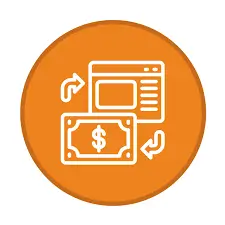Understanding the Purpose of Receivable Management
Receivables management boils down to making sure clients pay their bills. Efficient receivables management is thus critical to a company’s cash flow. Thus it is first important to understand what is receivable management. The following section will cover the Purpose Of Receivable Management.
What is Receivable Management?
Receivables are a type of current asset that is also known as trade credit as well as debtors. Account receivables are generated when a company sells its product on credit. The term “receivable” basically refers to the amount of money that has not yet been received. Accounts receivables thus refer to the sum of money owed by customers that have yet to be paid. And, as the name implies, receivable management is the handling of your accounts receivable. Receivables management encompasses the entire procedure of determining the credit policy, sending payment follow-ups, establishing payment terms, and timely collection of past-due payments.
Following are the Objectives and the Purpose of Receivable Management.
1. Helps in reducing the cost of credit
Receivable management assists businesses in reducing their cost of credit by trying to limit the credit amount as well as the credit period available to their customers. It efficiently performs all procedures including acquiring credit information from clients and even collecting all due payments, lowering the overall cost of credit facilities. To reduce the cost of credit, many enterprises limit the credit amount as well as the credit period.
2. Assesses customer credit ratings
One of the Receivable Management Purpose is that it may enable you to have an in-depth awareness of the customer’s credit rating. It can assist you in determining a customer’s borrowing limit and ability to pay back the credit amount. Evaluating your customer credit ratings may also be helpful in diminishing credit risk. Many financial planners approve credit applications after thoroughly reviewing customer credit ratings and ensuring complete satisfaction.
3. Boosts sales
Efficient receivable management enables businesses to increase their sales volume. Businesses can attract an increasing number of customers by offering credit. With the assistance of receivable management, they are able to effectively decide but also monitor credit facilities.
4. Reduces bad debt losses
One of the most important Receivable Management Purpose is that every precaution to avoid bad debts is taken. It develops and implements timetables for collecting outstanding amounts on time. It also notifies the department of the collection deadlines. Customers are made aware of both the time of payment as well as the amount they need to pay. They are also updated on the penalties for late payments.
5. Reduces Receivables Investment
It reduces receivables investment by ensuring that adequate funds are always available within the organisation. Receivable management determines the appropriate credit limit & credit period to avoid bankruptcy. Account receivables are collected as quickly as they become due for payment, thereby reducing the overall investment in receivables.
The primary goal of receivable management is to establish an effective credit policy that improves the effectiveness of the firm’s credit and collection department. Receivables management is a crucial part of managing a business. It is a critical component of generating cash flow in the business. For more information, you can get in touch with the expert team of Meru Accounting today!




























































